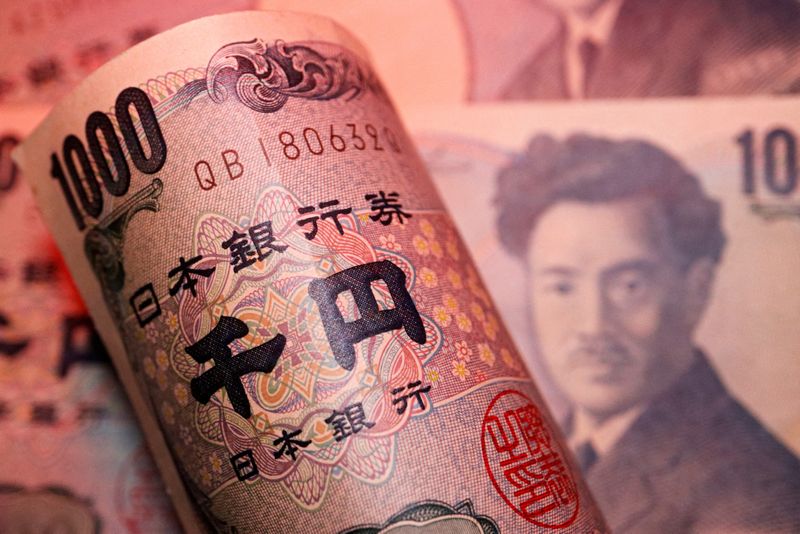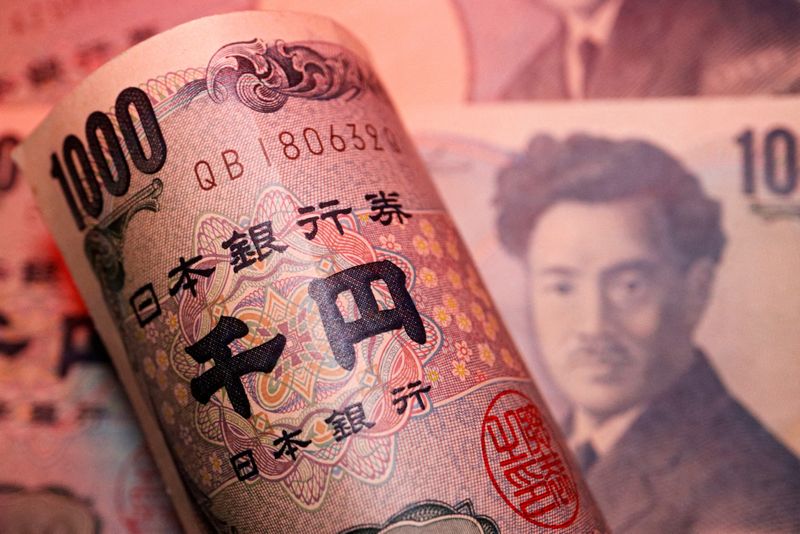
By Tom Westbrook
SINGAPORE (Reuters) -Japan’s yen scaled a six-week high on Thursday, spurring speculation of an official push, while traders waited on a European Central Bank meeting to direct the euro’s next move.
At $1.0929 the common currency was pinned near Wednesday’s four-month peak ahead of a meeting where rates are all but certain to be left steady and focus is on whether policymakers support market bets of a rate cut in September.
“We expect the ECB to emphasise that future interest rate cuts will be dependent on further declines in inflation and wages growth,” said Commonwealth Bank of Australia (OTC:CMWAY)’s Joe Capurso.
“The risk is that pricing for the September cut is reduced.”
The Australian dollar caught a small boost from some mixed jobs data and traded at $0.6738 and sterling slipped slightly, dipping just below $1.30 after British data showed steady unemployment and slowing wages growth in May.
The yen extended a sharp rally to touch 155.37 per dollar in the otherwise quiet early hours of the Asia session on Thursday, before steadying around 156.35, five yen below where it was a week ago.
Bank of Japan money market data suggested authorities may have bought nearly 6 trillion yen ($38.37 billion) last week, and traders said this week’s moves bore the hallmarks of further intervention, or at least of markets easily spooked by that prospect.
“Many traders and Japanese investors, after intervention, were looking to reload on their trades,” said National Australia Bank (OTC:NABZY) strategist Rodrigo Catril in Sydney.
“The big move (on Wednesday) would have caught them offside and triggered a little bit of a reassessment if not an unwinding of those positions.”
Net yen shorts stood near a 17-year high last week.
Interest rate markets are pricing more than 60 basis points of U.S. interest rate cuts this year and some 20 basis points of hikes in Japan, narrowing the wide rates gap that had encouraged investors taking on large short positions in the yen.
Catril and other analysts also pointed to remarks from U.S. presidential candidate Donald Trump – who described the dollar’s strength and the weakness of the yen and yuan as a big problem in a Bloomberg Businessweek interview – as rattling markets.
So far this year the yen is the worst-performing G10 currency on the dollar, losing more than 9%, while the yuan is down about 2.2%.
China’s yuan firmed slightly as traders awaited news of a key leadership gathering in Beijing that is expected to end later in the day. It was last at 7.2576 per dollar.

New Zealand’s dollar jumped through its 200-day moving average on Wednesday and held around $0.6071 after some sticky domestic elements of inflation gave pause to bets on imminent interest rate cuts.
($1 = 156.3600 yen)
This post is originally published on INVESTING.



